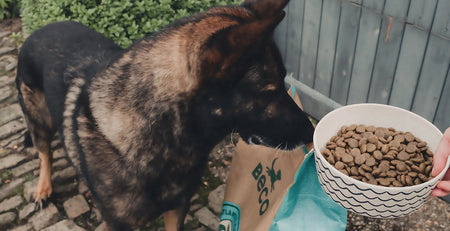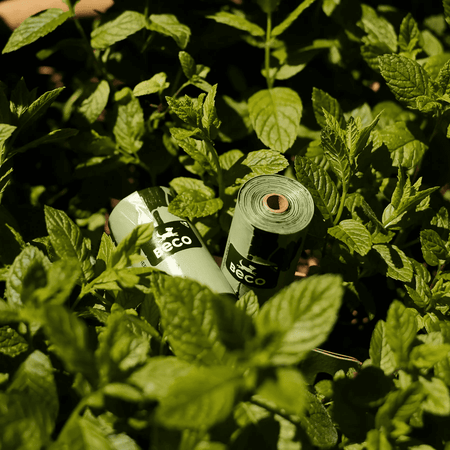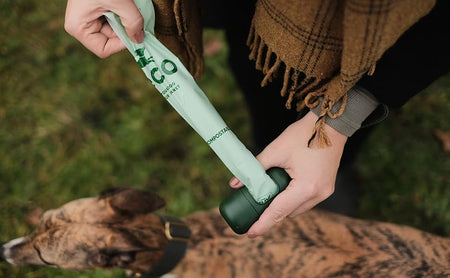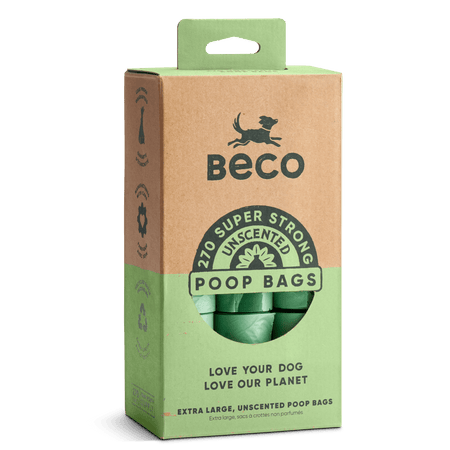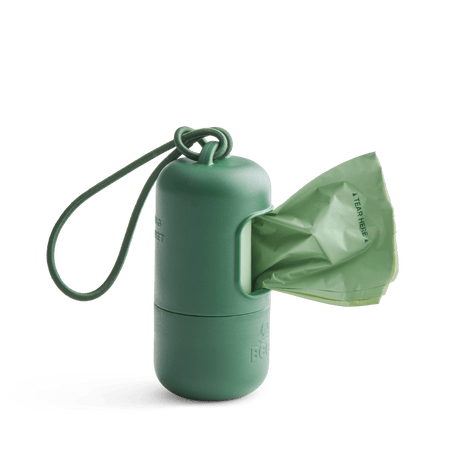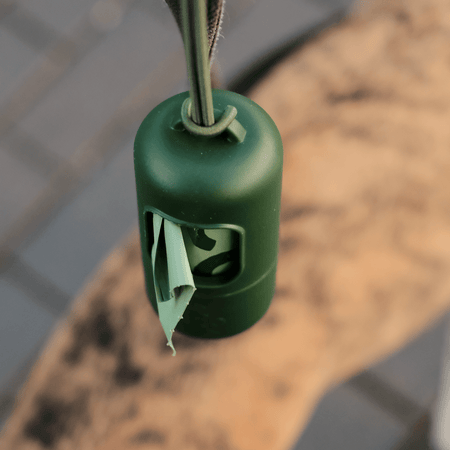It’s tempting. Your dog comes in from the garden with muddy paws or a bit of muck on their fur, and there’s a pack of baby wipes right there. Quick, easy, done.
But is it safe? Can you use baby wipes on your dog without risking irritation, dryness, or something more serious?
We’ll cover everything you need to know about using baby wipes on dogs, safer alternatives, and how to keep your pet clean between baths – especially if they’re prone to sensitive skin.
- Dog skin pH (6.5-7.5) differs from human skin (4.5-5.5); baby wipes disrupt dogs' natural balance.
- Baby wipes contain alcohols, preservatives, fragrances that can irritate or harm dogs through skin/ingestion.
- Breeds with skin folds, allergies, and puppies face highest risk from baby wipe ingredients.
- Dog-specific wipes are pH-balanced and free from harmful chemicals like parabens and sulfates.
Understanding the Difference: Dog vs Human Skin
Skin pH: Why It Matters
One of the biggest reasons baby wipes aren’t suitable for dogs is pH balance.
Human skin is slightly acidic, with a pH between 4.5 and 5.5. Dog skin, on the other hand, sits closer to 6.5 to 7.5 – more alkaline. That difference matters.
Baby wipes are pH-balanced for humans, not dogs. Using them on dogs repeatedly can throw off the skin’s natural balance, weakening the protective barrier and opening the door to dryness, irritation, and infection.
Skin Barrier Sensitivity in Dogs
A dog’s skin is thinner and more sensitive than ours. Their protective barrier – made up of natural oils and microbes – can easily be disrupted by harsh ingredients.
This can trigger allergic reactions or flare-ups in dogs already prone to skin issues.
What’s in Baby Wipes & Why It’s a Problem for Dogs
Common Baby Wipe Ingredients That Can Irritate or Harm Dogs
While many baby wipes are considered safe for human use, they often contain:
-
Alcohols like isopropyl or propylene glycol, which strip natural oils and dry out the skin
-
Preservatives such as parabens, DMDM hydantoin, and quaternium-15, linked to allergic reactions and endocrine disruption
-
Fragrances and essential oils that overwhelm dogs’ sensitive skin and noses
-
Antibacterial agents like chlorhexidine, which may be toxic if absorbed or ingested
-
Sulfates, which act as harsh surfactants and further compromise the skin barrier
Risk of Ingestion Through Licking
Here’s the other thing: dogs lick themselves. A lot. Anything left on their skin or coat, including chemical residues from a wipe, is likely to end up in their digestive system.
Ingredients that are harmless for humans, even babies, aren't always safe for pets when ingested.
Is It Ever Okay to Use Baby Wipes on Dogs?
Emergency Use Scenarios
In a pinch, using an unscented, alcohol-free baby wipe once or twice isn’t likely to cause major harm, especially if your dog doesn’t have pre-existing skin conditions.
But it should never be your go-to cleaning method.
What to Avoid Even in a Pinch
If the wipes have fragrance, essential oils, alcohol, preservatives, or antibacterial agents – steer clear.
And don’t use them on sensitive areas like the face, paws, skin folds, or any broken skin.
Which Dogs Are Most at Risk From Baby Wipes?
Breeds with Skin Folds or Sensitive Skin
Some breeds are more vulnerable:
-
Bulldogs, Shar-Peis, and Pugs – prone to skin fold infections
-
Labradors, Retrievers, Boxers – frequently suffer from allergies
-
Terriers, Spaniels – at high risk for dermatitis and hot spots
Puppies and Allergy-Prone Dogs
Puppies, immunocompromised dogs, or those with atopic dermatitis have a weaker skin barrier and are more susceptible to flare-ups.
Why These Dogs Are More Vulnerable
When skin is already compromised, it reacts more strongly to pH imbalance, chemical irritants, and trapped moisture. Using baby wipes on these dogs can trigger rashes, secondary infections, or make existing conditions worse.
What to Use Instead of Baby Wipes for Dogs
Dog-Specific Grooming Wipes
Dog wipes are formulated with your dog’s needs in mind:
-
pH-balanced for dogs
-
Free from alcohol, parabens, sulphates, and synthetic fragrance
-
Gentle, moisturising ingredients like aloe vera, chamomile, vitamin E, shea butter, and oatmeal
DIY & At-Home Alternatives
-
Damp Cloth: Simple, safe, and chemical-free. Ideal for muddy paws or quick face wipes.
-
Homemade Wipes: Use distilled water, aloe vera, and a tiny bit of unscented pet shampoo. No essential oils or fragrances.
Signs Your Dog Is Reacting Badly to a Wipe
Mild Symptoms
-
Excessive licking or scratching
-
Redness, flaky or dry skin
-
Small raised bumps or hot spots
More Serious Reactions
-
Facial swelling (around eyes, lips, muzzle)
-
Hives
-
Difficulty breathing, vomiting, or collapse (rare but urgent)
What to Do
-
Rinse the area gently with lukewarm water
-
Discontinue use of the wipe immediately
-
For mild irritation: use a pet-safe soothing wipe with aloe or oatmeal
-
For severe reactions: seek emergency veterinary care
Frequently Asked Questions
Can baby wipes be used to clean my dog’s ears?
No, avoid using baby wipes inside your dog’s ears. The ear canal is delicate and prone to irritation. Use vet-approved ear cleaners designed specifically for dogs.
Do hypoallergenic baby wipes make a difference for dogs?
Not necessarily. Even “hypoallergenic” baby wipes are formulated for human skin pH and may still contain preservatives or additives that irritate canine skin.
Can baby wipes be used on my dog's fur after walks?
It’s better to use dog-specific grooming wipes or a damp cloth. Baby wipes might leave residue your dog could lick off, especially if used frequently.
Are there any baby wipes brands that are considered safe for dogs?
No baby wipes are truly designed for pets. While some fragrance-free or water-based brands may be less harsh, they still don’t meet canine skin requirements. Always check with your vet before using any non-pet product.
Conclusion
Using baby wipes on your dog might seem harmless, especially when you’re short on time or dealing with muddy paws, but it’s not the best choice for their skin.
Human wipes are made for our more acidic skin, not the more alkaline, sensitive skin of dogs. The ingredients in many baby wipes (like alcohols, fragrances, and preservatives) can cause dryness, irritation, or worse, especially in breeds with allergies or skin folds.
If you’re cleaning your dog regularly, stick to wipes made specifically for them. They’re pH-balanced, gentle, and designed to avoid the issues baby wipes can trigger.
For everyday messes, our dog wipes are a safer, skin-friendly alternative – formulated for pets, so you can clean paws, fur, and mucky spots with more peace of mind. Shop now!







